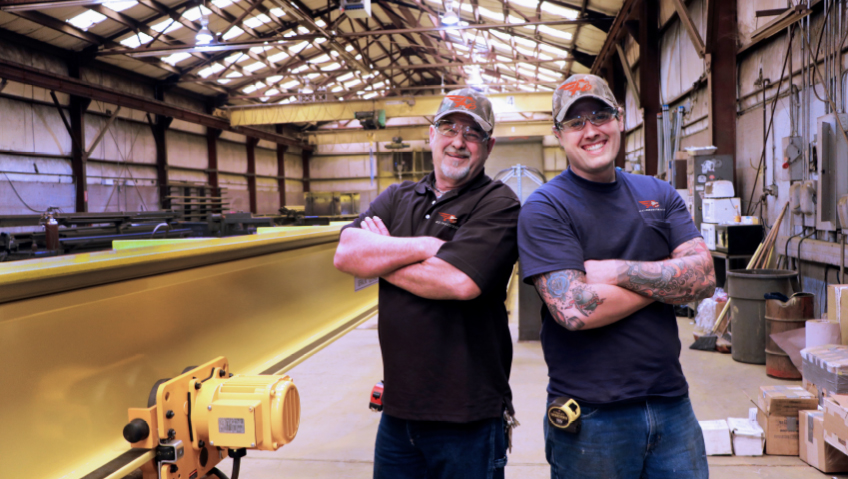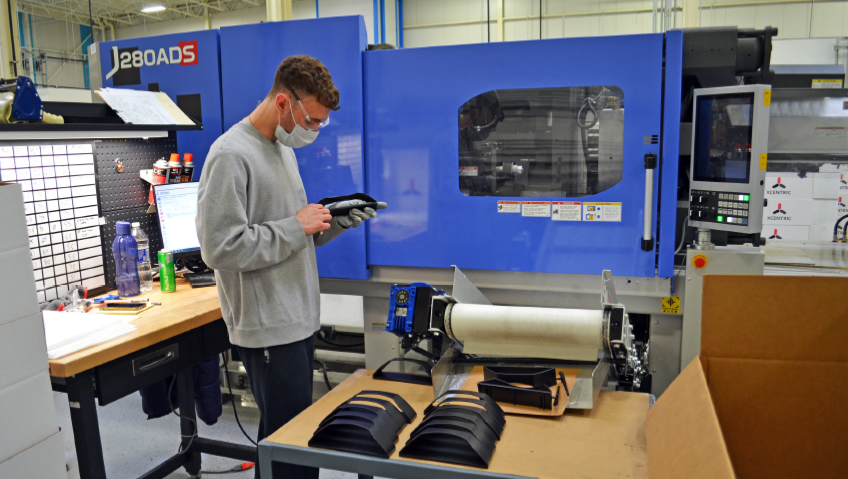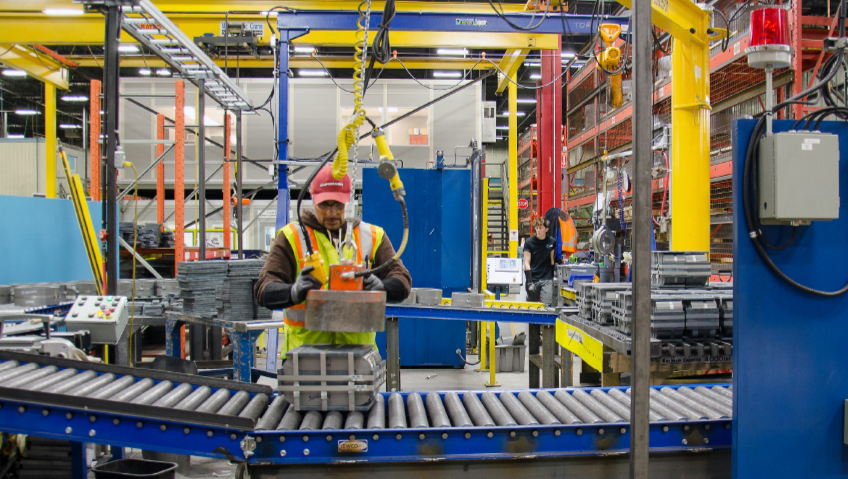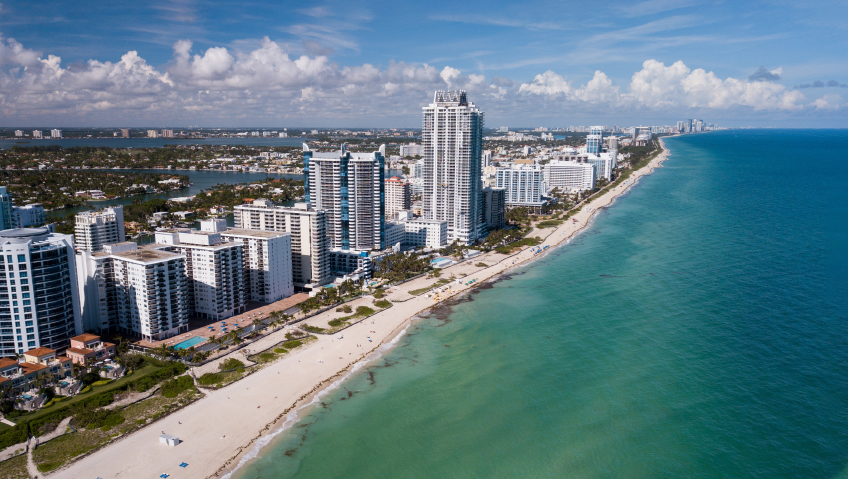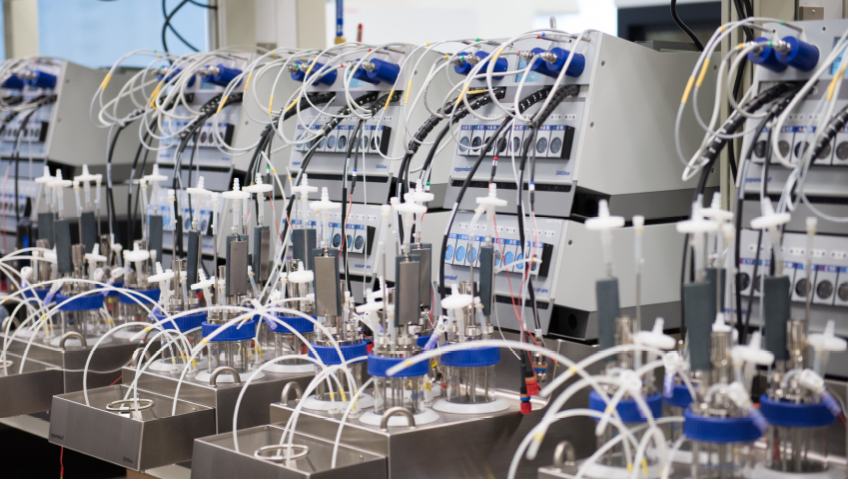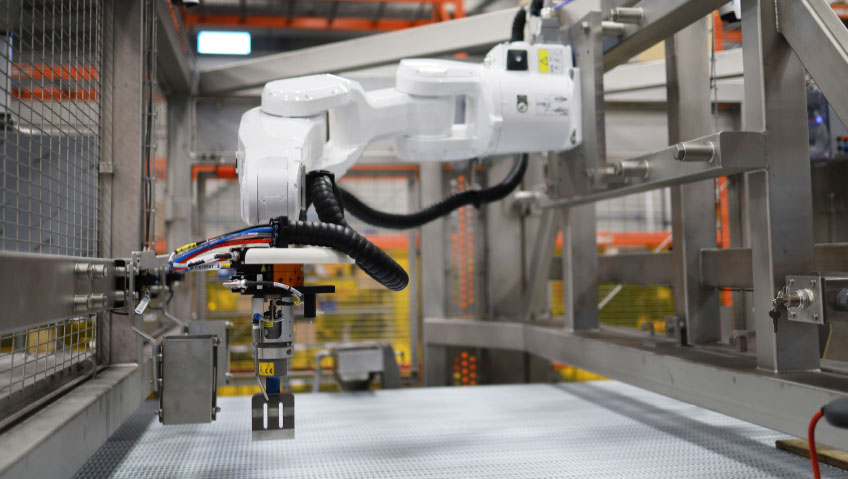Ace Industries, a family business based in Atlanta, Georgia, has a rich history that can be traced back to 1932. The focus on solving customer problems, instead of simply selling a product, has held true for three generations and this culture will be passed on to the next.
The company manufactures overhead bridge cranes, gantry cranes, jib cranes, monorail systems, hoists, and custom lifting equipment. This overhead lifting expert has grown to become the largest independent crane and hoist company in the United States, providing manufacturing, distribution, and full customer-centric service.
“We do everything from the design, the engineering, the installation, the inspection and maintenance, and the repairs of overhead cranes and hoists. That makes us very unique because the industry is often fragmented,” says Ace Industries’ Chief Operations Officer Daniel Arwood.
The various services offered by Ace Industries are frequently split across separate design engineering firms, steel erectors, inspectors, service providers, and original equipment manufacturers. “We really bridge the gap for our customers, but we specialize in the niche of overhead lifting with overhead cranes.”
Ace Industries provides light-duty ergonomic lifting solutions as well as large overhead cranes with the capacity to lift hundreds of tons. The lighter lifting solutions, which are regularly used for automotive plants and assembly operations, require a deep understanding of ergonomics, since employees are using lifts repeatedly throughout the day. The heavier projects in need of large equipment such as power generation, metals production, and forestry operations call for Ace’s expertise in automation and reliability engineering for process applications.
In addition to establishing itself as a quality manufacturer and designer of lifting equipment, Ace is known for providing exceptional customer field support in these demanding environments. Its equipment goes into heavy industry processes, so in order to design the equipment efficiently, the team must comprehend its application. Ace has the experience to navigate the safety requirements, physical requirements, and other environmental factors within heavy industries.
“We’re a technical company at heart, and we really focus on servicing and manufacturing critical equipment. We focus on building reliable equipment, and we try to service that equipment with efficiency and speed, and that makes us a unique fit for companies in aerospace, military and defense, paper and forestry, metals production, automotive, oil and gas, energy, and power,” says Arwood.
Ace Industries was founded in 1932 under the name Ace Electric Company, by Daniel’s grandfather Harold Arwood, Senior. It began as a motor repair facility with an office on Edgewood Avenue in Atlanta, Georgia, steps away from the Georgia State Capitol. The intention, from the outset, was to create a family business, and by the 1970s, Harold’s son Bud had taken over and led the expansion into the crane business. The current chief executive officer is Josh Arwood, Harold Sr.’s grandson and Daniel’s brother.
With Bud Arwood at the helm of the company in the 1970s and 1980s, Ace transitioned from a small electric motor repair shop to a parts and new equipment distributor for US-based hoist and crane manufacturers. The company had excellent inventory controls and the ability to ship the same day, which was rather unique at the time. This quality led Ace to become a master dealer for Coffing, Yale, Budgit, Shaw-Box, Harrington, R&M, Stahl, Duff Norton, and the Columbus McKinnon Corporation.
The expansion into manufacturing and services in the nineties was based on a combination of market changes and end user demands. As international equipment manufacturers entered the U.S. market just as domestic suppliers went through a wave of aggregation, customers began to look to Ace to guide product design and selection decisions for increasingly complex lifting scenarios. As the company was able to offer both domestic and internationally supplied components for its clients, Ace was able to simplify selection decisions and provide the most effective solution to its clients.
To increase its capacity to manufacture overhead cranes, Ace acquired a new facility just outside of Metro Atlanta and soon began to open regional service centers. The first were in Birmingham, Alabama and Cincinnati, Ohio, and since that time, the company has continued a methodical expansion both organically and through the acquisition of other crane companies. Ace now has over thirty-six offices in the U.S. from Florida to Washington State, and in the future, it hopes to expand further into the Midwest and Northeast.
Ace began during a difficult time following the Great Depression, and it has endured a number of economic and political challenges throughout its journey. These have taught the company to be adaptable and pivot when necessary. “There are great legends at Ace about the many changes that have happened, and I do say legends because Ace has been around for a lot of years, and we have developed a reputation in the industry for being ethical, responsible, responsive, customer-centric and good at what we do,” says Arwood.
Many companies in the manufacturing industry have experienced a ripple effect in material prices and demand due to the pandemic. Steel has seen significant price fluctuations and caused inflationary pressures for overhead crane manufacturing since it is the primary commodity used in a crane. “When you’re building a crane project that has 200,000 pounds of steel in it, and the price of steel goes up from $0.85 a pound to $1.35, it’s a problem, but I think we can reasonably expect to see that stabilize,” explains Arwood.
The company’s services are considered essential since overhead cranes are used to transport products through manufacturing facilities. If it had suspended its services, it would have caused a bottleneck in production. “It has been really important for our business, for Ace to be able to continue to faithfully serve our customers safely through the pandemic because of the highly essential [production]. Lights need to come on; oxygen needs to be produced; toilet paper needs to be made, and we are right there lockstep with our customers during this time through it,” says Arwood.
Another current challenge in the market is the demand for sub-assembly components. However, Ace has also found ways to work around this complication to ensure that its customers do not have to face the chaos behind the scenes. “Our inventory on hand has been able to float the sub-assembly components problems. Our sourcing and materials management for steel has enabled us to price effectively and not pass massive cost price increases to our customers and that directly translates to our customers being more competitive, saving money, and being more efficient,” says Arwood.
Ace is leading the overhead crane and hoist manufacturing industry with its experience and drive. Chief Executive Officer Josh Arwood is the outgoing president of the Crane Manufacturers Association of America (CMAA), an organization that helps set the standards for the entire industry.
This display of leadership is also clearly extended within the team. The company’s leadership regularly spends time in the field working on equipment with the service technicians and all employees support each other and each other’s customers as one large team across regions.
The overhead crane industry is rapidly changing hands due to consolidation, and the future of the market is somewhat unknown. No stranger to this type of environment, Ace is focused on its strategic goals, and it is strongly committed to continuing the enduring legacy that has been established.
“My daughter, who is nine years old, has repeatedly reminded me over the past few years that someday she wants to work in the family business, so I think we’re doing something right,” Arwood says proudly.
Ace plans to continue expansion on the West Coast, where there is plenty of opportunity, the Midwest will follow, and finally, the company will establish itself in the Northeast to offer full coast-to-coast overhead crane services. “In an industry that is changing and moving fast, where private equity is running through and buying up crane companies, we’re going to continue to do what we do best, which is continue to grow our expertise, our skills, and our strategic advantage,” says Arwood. “We’re going to continue to do that without taking on debt or taking outside capital, and we’re going to stay true to our people.”

